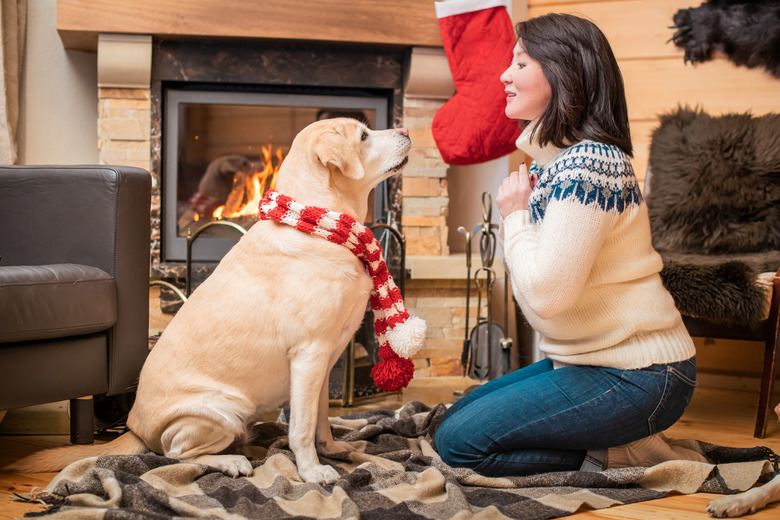How To Train A Dog Not To Be So Clingy
Nothing is better than snuggling with your dog on laid-back days, but if your pup constantly spends every minute of the day with you, that can lead to behavioral issues, like separation anxiety. To combat issues with separation anxiety and calm your clingy pup, you'll need to train him to tolerate being alone.
While you love spending time with your dog, if he tends to destroy your home and vocalize nonstop when you're not around, that can be frustrating for you and your neighbors. Explore some ways to ensure that your pup is happy when he's by himself and that you are spending enough quality time together too so he's not starved for attention when you are around.
Dealing with a clingy puppy
Dealing with a clingy puppy
Puppies are learning the ways of the world, and when they're young, they think of you as their favorite person and leader. So, you may find yourself with a puppy who wants to spend all of her time by your side.
Start countering clingy behavior by teaching your pup that she can spend time away from your side calmly. Provide your pup with a safe space, like a crate, comfortable mat, or dog bed. Give your dog a command, like "go to your spot." Then, lead the dog to the spot and treat her with something yummy. Say "stay" and wait a few seconds before treating your dog again. Continue training, extending the time between the command "stay" and the treat.
Eventually, you'll want to see your pup spending time calmly in her designated spot without giving her the command. Provide your dog with a few toys in this spot to occupy her and always praise her for calm play.
My dog is too clingy
My dog is too clingy
When dealing with a clingy dog, you may notice that your dog becomes anxious when you're about to leave the home. To combat this, keep exits and returns to your home as calm as possible.
You'll also want to occupy your dog just before you leave so he doesn't become upset at seeing you go. A good choice is to give your dog a puzzle toy in his safe spot, filled with his favorite food, like peanut butter, cream cheese, or kibble. To occupy his time while you're away, you can also hide some kibble or treats around your home to keep him hunting for food
Ways to calm a clingy dog
Ways to calm a clingy dog
Clingy dogs who suffer from separation anxiety may benefit from veterinary treatment with medication. Other things, like compression shirts and synthetic dog pheromone sprays, collars, and diffusers can also have a calming effect on dogs who are anxious.
Another option is to hire a dog walker to exercise your dog when you're at work, or you can drop off your pup at doggie day care so that she is not left alone in your home. Emotionally needy dog breeds, like Labrador retrievers, border collies, Jack Russell terriers, German shepherds, and toy poodles, may benefit from this kind of attention during the day.
You'll also want to leave an item of your recently worn unwashed clothing in your dog's favorite spot or in her crate. This provides your scent, which can calm your dog while you're not there.
Spend time with your dog
Spend time with your dog
While you don't want a pup who is unable to leave your side, you also need to understand that spending time with your dog is a necessary part of being a good owner. If you ignore your dog all the time, he may seem clingy because he is desperate for your attention.
Spend time playing with your dog and provide him with at least 30 minutes of exercise each day. Not only is this a good way to bond with your dog but it helps to tire him out so he will be less likely to worry and become destructive when you're away.
Most importantly, keep all of your time with your dog positive. Never punish your dog for being clingy or destructive while you're away. This will only serve to make your dog fearful and more anxious than he already is.
References
- American Society for the Prevention of Cruelty to Animals: Separation Anxiety
- Lake City Humane Society: How to Help Your Dog with Separation Anxiety
- American Kennel Club: Dog Separation Anxiety: Causes, Prevention, and How to Stop
- VCA Hospitals: Separation Anxiety in Dogs
- Country Living: 10 Dog Breeds Most Likely to Suffer from Separation Anxiety


